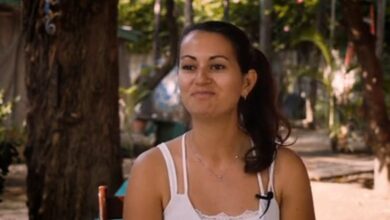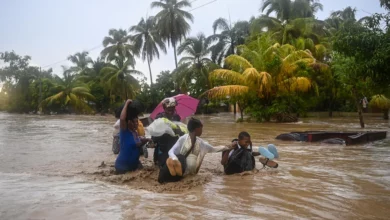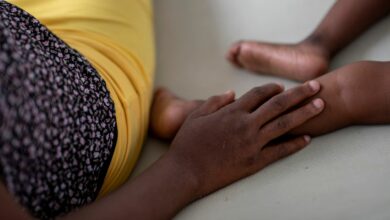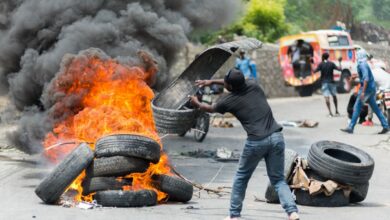PORT-AU-PRINCE, HAITI — Haitians still have much to do to recover from the 2010 earthquake, President Michel Martelly said Monday, and he conceded to having made political blunders.
His remarks came as he presented his first government report since taking office in May and took on the task of rebuilding from a disaster that officials say killed more than 300,000 people and flattened the capital and surrounding cities.
"We need to help [Haitians] build back better their communities, give them more support, bring them water, infrastructure, electricity, drainage and police," Martelly told his audience of lawmakers and senior officials. "And don't forget to give them the opportunity for them to gain revenue."
But Martelly, a political neophyte before winning the presidency, conceded he had made mistakes in his first few months in office, saying he was "young to power."
"I have to ensure that all three powers are working together," he said, referring to the executive, legislative and judicial branches. "I'm hoping that in 2012 things will work out much better among the three powers."
Martelly began his five-year term by lashing out at lawmakers and they responded by rejecting two of his first picks for prime minister, which hobbled struggling reconstruction efforts. It took six months for him to install a prime minister who then put a Cabinet in place.
Relations between Martelly and Parliament plunged after police locked up an opposition legislator without following the law. Some senators and deputies accused Martelly of abusing his authority as president.
The 30-minute report Martelly presented spelled out the many challenges his government faces as Haiti enters the third year of recovery. It noted the need for improved security, more jobs and children in school and help for the countryside's farmers.
Martelly said 800,000 Haitians are living without electricity, 500,000 can't read or write, and eight out of 10 live on less than US$2 a day. Many educated Haitians have left the country, he added.
The president also mentioned how Haiti is run by a very small group of people but didn't single out anyone. Just 2 percent of Haitians control 69 percent of the economy, he said.
The controversial issue of Martelly's call to restore the disbanded army as a "national defense force" also came up.
Despite opposition from some Western diplomats and rights group, the leader said the new army would patrol Haiti's borders and protect its few remaining forests. A military, he said, would allow Haiti to regain its sovereignty and enable the withdrawal of a UN peacekeeping mission that has helped provide stability since its arrival in 2004.
Critics of the army proposal say money to revive the force would be better spent on strengthening the national police force, which has 8,000 officers in a country of 10 million, or on reconstruction efforts. The army was disbanded in 1995 because of its involvement in coups and other abuses.
The speech came three days before Haiti observes the second anniversary of the quake. Government officials, Western diplomats and humanitarian groups are spending the week promoting their work, but many Haitians are frustrated over what they see as little progress.
The events surrounding last year's anniversary were fewer and more solemn. The country was still in mourning, coping with a contested presidential election that had sparked tire-burning riots, and trying to control a cholera epidemic that had erupted only a few months prior.
The waterborne disease created a parallel crisis to the destruction caused by the earthquake. Health care workers say Haiti now has the highest cholera infection rate in the world.
Nearly 500,000 people have fallen ill and 7,000 have died because of the disease, health officials say. Studies show cholera was likely introduced to Haiti by a UN battalion from Nepal, where the disease is endemic.




